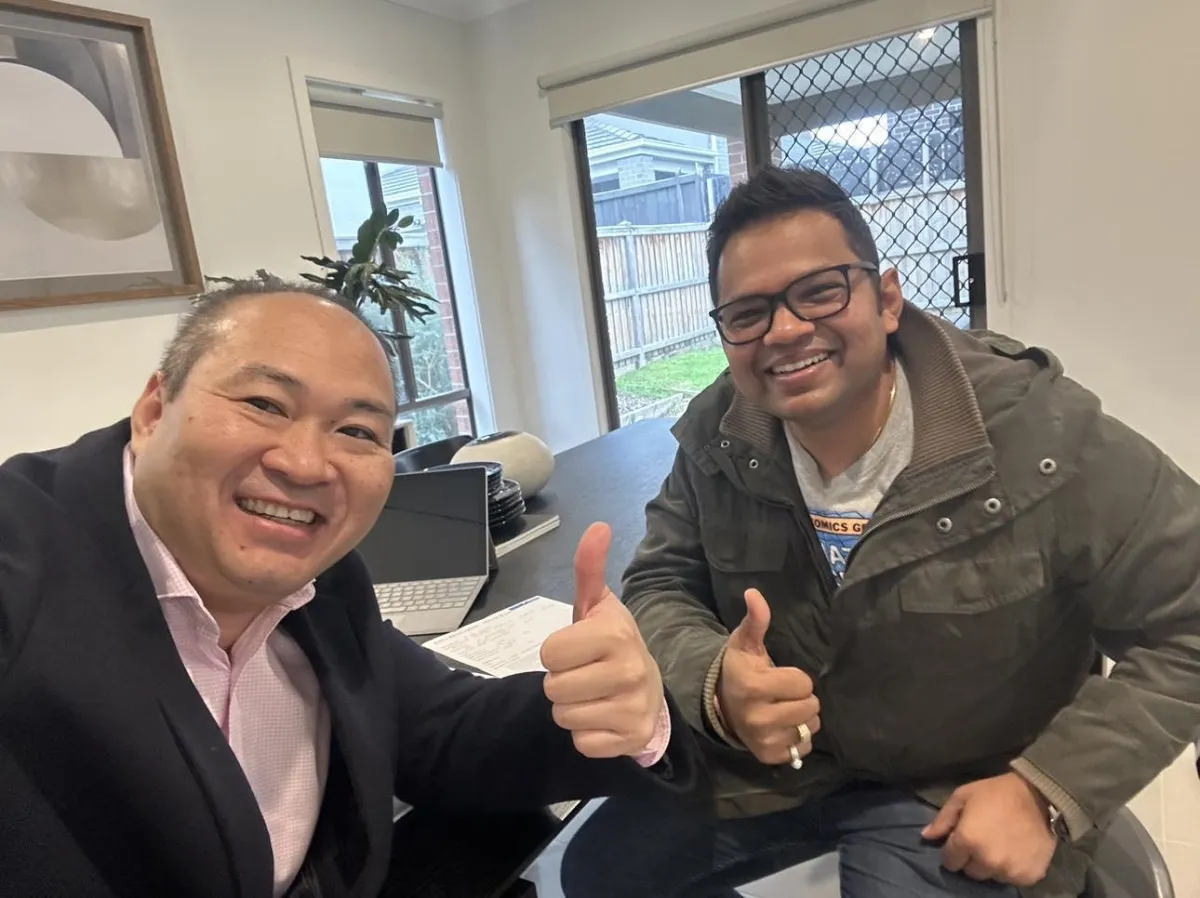Frequently Asked Questions

Your Guide to NDIS Investment:
Find answers to the most common questions about NDIS property investment. If you need further assistance, feel free to contact us.
General Questions about NDIS and NDIS Properties
What is NDIS?
The National Disability Insurance Scheme (NDIS) is a government initiative aimed at providing financial support to hundreds of thousands of Australians with significant and permanent disabilities, as well as their families. The NDIS is designed to help individuals with disabilities live more independently.
What is a NDIS Participant?
A ‘Participant’ is an individual with a disability who has been accepted into the National Disability Insurance Scheme (NDIS) and receives funding to purchase supports and services that assist them in achieving their goals.
What is a NDIS Provider?
A ‘provider’ is a person or business, registered with the NDIS to offer support and services to a Participant.
What is the best NDIS property type?
The best NDIS property type depends on the demand in your area and the specific needs of participants. Common types include apartments, houses, and shared living arrangements, each catering to different levels of care and accessibility.
How much cash is needed for an NDIS property and what income can I expect from a property?
The cash required for an NDIS property is around $150k for a deposit. Typically, a substantial initial investment is needed due to the specialized nature of these properties. Income can range from $60-80K annually per property after expenses, depending on tenant occupancy and funding levels.
What are all the ongoing costs?
Ongoing costs include mortgage payments, maintenance and repairs, insurance, property management fees, and any upgrades needed to keep the property compliant with NDIS standards.
How much do I make from one tenant?
Income from one tenant can vary based on their NDIS funding level and the rent agreed upon. Typically, a property can generate a significant annual cash flow, often in the range of $60-80K after expenses, depending on the number of tenants and their funding.
How do you create participant income?
Participant income is generated through the National Disability Insurance Scheme, which allocates funding based on individual needs. This includes rent and other support services.
We ensure our properties meet the specific requirements of participants, making them eligible for NDIS funding. This funding covers a significant portion of the rent, ensuring steady income for property owners.
Where are the NDIS tenants?
NDIS tenants are individuals with disabilities who have been allocated funding through the NDIS Government program. They are matched with suitable properties through various channels, including support coordinators, local disability organizations, and housing platforms that specialize in NDIS accommodations.
How many potential tenants are there?
The number of potential tenants depends on the specific location and the demand for NDIS accommodations in that area. Nationally, there are thousands of individuals eligible for SDA funding, with demand varying by region.
Investment and Risk
What is the biggest risk with NDIS property?
The biggest risk with NDIS property is the potential for vacancies, which can impact your cash flow. Ensuring your property is in a high-demand area and meeting the specific needs of participants can mitigate this risk.
Do NDIS properties see the same capital growth?
NDIS properties can experience capital growth, but it may vary compared to traditional properties. Factors such as location, demand for disability accommodation, and overall property market conditions will influence capital growth.
It's crucial to consider both the rental income potential and long-term appreciation when investing.
Are NDIS properties overpriced?
NDIS properties may have higher initial costs due to the need for specialized features and compliance with standards. However, the rental income and potential demand can justify the investment.
It’s important to conduct thorough market research and financial analysis to determine if the pricing is appropriate.
NDIS rents seem too good to be true. Are they?
NDIS rents can be higher than typical rental properties due to the specialized nature and demand for disability accommodations. The higher rent reflects the additional costs of building and maintaining such properties. It’s essential to verify rental income projections with actual market data.
Tenant and Funding Questions
Who funds the rent in NDIS? Does the tenant family contribute anything?
The rent for NDIS properties is primarily funded by the NDIS through the participant’s plan. This funding covers most of the rent, ensuring that participants can live in suitable accommodations.
Families may contribute a small amount, known as a "reasonable rent contribution," which is typically a portion of the participant’s disability support pension or income.
What happens if I don’t get a tenant or participant for my investment?
One of the biggest concerns for potential investors is the risk of not securing a tenant. If you don’t get a participant for your NDIS property, you still need to cover your mortgage and other expenses. However, our extensive network and marketing strategies are designed to minimize this risk.
We work closely with support coordinators and local disability organizations to match participants with properties. Additionally, having a financial buffer or contingency plan is crucial to managing periods of vacancy.
How can I be sure I'll get tenants?
We use comprehensive marketing strategies and have strong connections with disability service providers to help secure tenants. Ensuring your property meets the specific needs and standards required by NDIS participants can also enhance tenant attraction.
What about a rental guarantee?
Some investment providers offer rental guarantees to mitigate the risk of vacancies. These guarantees ensure a certain level of income even if the property is vacant for a period. It’s important to review the terms and conditions of any rental guarantee offered.
Property Maintenance and Upgrades
Does the government contribute to repairs and maintenance?
The government does not directly fund repairs and maintenance. These costs are typically covered by the property owner. It’s important to budget for ongoing maintenance to ensure your property remains compliant with NDIS standards and attractive to potential tenants. However, if the repairs and maintenance of an NDIS property are related to the specific needs of a participant with a disability, such as modifications to make the property more accessible or suitable for their needs, the NDIS may fund these modifications as part of the participant's plan.
It's essential for participants to discuss their specific needs with their NDIS planner and service providers to determine if any repairs or maintenance required for their property are eligible for funding through the NDIS.
Additionally, participants can explore other government programs or grants that may provide assistance for property repairs and maintenance, depending on the circumstances and eligibility criteria.
Is the owner compelled to update kitchens, bathrooms every so often or with every new tenant?
While there is no strict mandate to update kitchens and bathrooms with every new tenant, it’s advisable to keep your property well-maintained and updated to attract and retain tenants. Regular updates and maintenance can also prevent larger, more costly repairs in the future.
Can you retrofit an old property for NDIS?
Yes, it’s possible to retrofit an existing property to meet NDIS standards. This process involves significant modifications to ensure accessibility and compliance with NDIS requirements. It’s essential to work with experienced builders and consultants familiar with NDIS standards.
Additional Questions
Do you recommend an area to invest, or do I need to look on my own?
We provide detailed recommendations on prime investment areas based on demand statistics and market research. Our team analyzes data on where the highest demand for NDIS properties is and guides you accordingly. However, if you prefer, you can also conduct your own research and choose an area that you feel confident about.
How can I instantly get my next property?
To expedite acquiring your next property, work with experienced NDIS property advisors and leverage financing options available for investors. Keeping up-to-date with market trends and maintaining good relationships with real estate agents can also help.
How do the valuations work on NDIS properties?
Valuations for NDIS properties consider the specialized nature of the property, location, market demand, and potential rental income. Independent valuers with experience in disability accommodations provide the most accurate assessments. On average our properties increase by $30k p.a
Comprehensive Overview
Your Guide to the NDIS Investment Program
This in-depth video covers every question you have about the NDIS Investment Program.
Be sure to watch the entire video before moving on to the next step!
Testimonials
Some of our customers review about our services

Jacob Braithwaite
Dec 6, 2022
Martin handled our experience with such diligence it was pleasure and we would highly recommend his service! Martin dealt with everything on the front end updating us regularly along the way and more importantly educating us. Myself and my partner are very grateful for your effort and time and hope to continue doing business for many years to come.


Kaillan Tamarua
Nov 15, 2022
I never had such a high stature of professionalism that I’ve experienced with Martin Tran and his team. This is a team with a mixture of vast experiences, quick responsiveness, respect and communication skills which makes them a valuable asset to anyone looking to buy a home. I felt very lucky to have Martin and his team in my corner. Would highly recommend to anyone and everyone!!! 10+star rating ⭐️

Copyright 2022. All Right Reserved.

ALL Right Reserved. Copyright 2024.